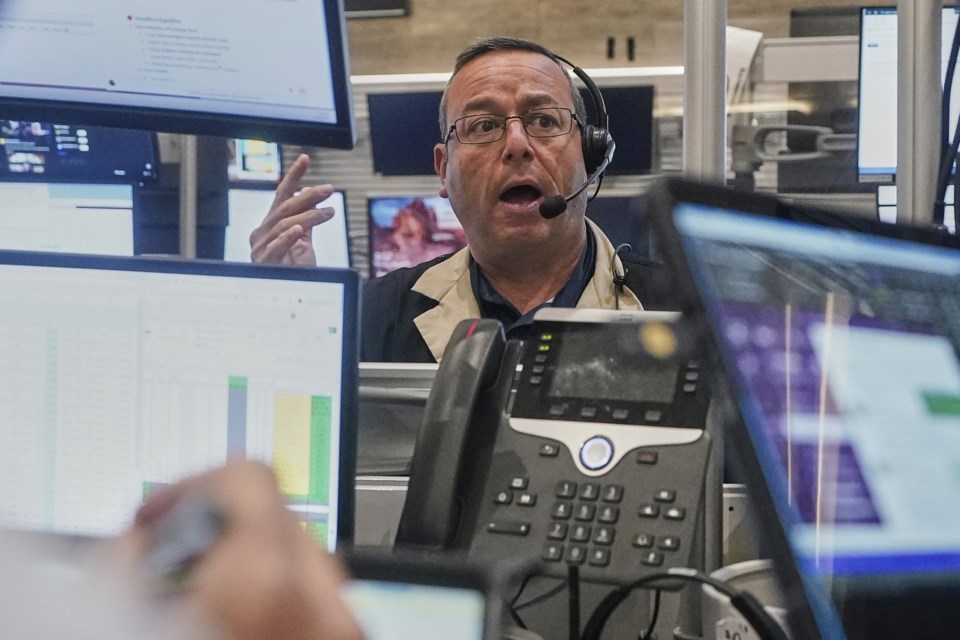BANGKOK (AP) — Shares were mixed in Asia on Monday, with markets in China gaining after surveys showed a slight improvement in Chinese factory data, suggesting manufacturing is holding up despite higher U.S. tariffs.
Investors were awaiting further developments after the U.S. Court of Appeals for the Federal Circuit ruled Friday that Trump went too far when he declared national emergencies to justify imposing sweeping import taxes on almost every country on earth.
Hong Kong’s Hang Seng jumped 2% to 25,573.58, while the Shanghai Composite index added 0.3% to 3,869.96.
A government survey showed China’s factory activity improved marginally in August, with a measure known as the purchasing managers index rising to 49.4 from 49.3 in July. The survey is on a scale of 0 to 100 where 50 marks the cutoff for expansion.
That survey and another, private sector one that showed the general PMI at 49.9 last month, up from 49.4 in July, still show manufacturing contracting. But both suggest resilience despite U.S. President Donald Trump's higher tariffs.
China and the U.S. are still negotiating over a broad trade agreement that will influence how much import duty companies and consumers will pay on goods shipped to the U.S.
“The PMIs suggest that China’s economy accelerated last month, thanks to faster growth across manufacturing and services. But we don’t see much upside over the rest of the year,” Zichun Huang of Capital Economics said in a commentary.
Japan’s Nikkei 225 index fell 2% to 41,849.82, while the Kospi in South Korea shed 0.8% to 3,161.31.
Shares also fell in Australia, with the S&P/ASX 200 losing 0.7% to 8,913.10.
Taiwan's benchmark lost 1.1% while New Zealand's gained 0.5%.
U.S. markets will be closed on Monday for the Labor Day holiday.
On Friday, Wall Street closed out another winning month though benchmarks ended below their latest all-time highs.
The S&P 500 fell 0.6% a day after climbing to a record high, ending the week at 6,460.26. The benchmark index ended August with a 1.9% gain, its fourth straight month of gains. It’s now up 9.8% so far this year.
The Dow Jones Industrial Average also came off its own record high, slipping 0.2% to 45,544.88. The Nasdaq composite closed 1.2% lower at 21,455.55.
Losses in technology weighed on the market, offsetting gains in health care and other sectors.
Dell Technologies slid 8.9% for the biggest decline among S&P 500 stocks a day after the company reported second-quarter revenue that exceeded analysts’ expectations, but noted that margin pressures and weakness in PC revenue.
Among other tech companies that ended the day in the red: Tech giant Nvidia fell 3.3%, Broadcom dropped 3.6% and Oracle slid 5.9%.
Mixed economic data gave traders an excuse to sell and pocket some profits following the market’s milestone-setting week.
The Commerce Department said prices rose 2.6% in July compared with a year earlier, as measured by the personal consumption expenditures index. That’s the same annual increase as in June and in line with what economists expected.
Still, excluding the volatile food and energy categories, prices rose 2.9% last month from a year earlier, up from 2.8% in June and the highest since February.
The most recent government data suggests hiring has slowed sharply since this spring, raising alarm over the direction of the broader economy.
Meanwhile, the latest reading in a survey of U.S. consumers by the University of Michigan showed sentiment soured in August, hitting its lowest level since May due to concerns about prices and the economy.
Not all stocks lost ground. Petco Health & Wellness and Autodesk bucked the broader market slide after reporting better-than-expected quarterly results. Petco jumped 23.5% and Autodesk climbed 9.1%.
In other dealings early Monday, U.S. benchmark crude oil shed 23 cents to $63.78 per barrel. Brent crude, the international standard, fell 28 cents to $67.20 per barrel.
The U.S. dollar slipped to 146.93 Japanese yen from 147.00 yen. The euro rose to $1.1770 from $1.1682.
Elaine Kurtenbach, The Associated Press



